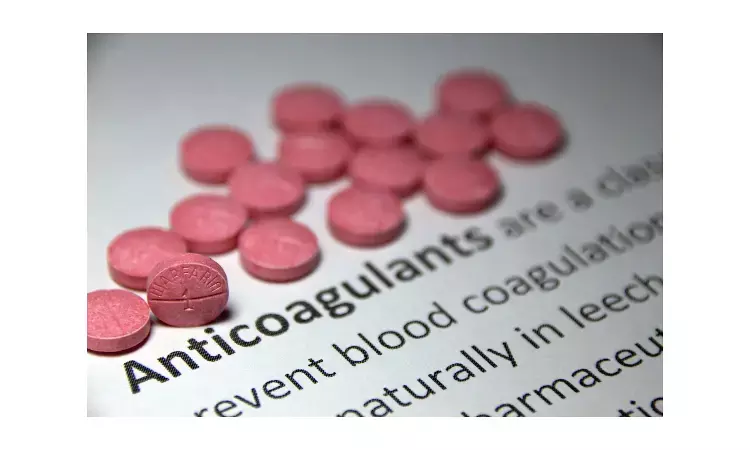- Home
- Medical news & Guidelines
- Anesthesiology
- Cardiology and CTVS
- Critical Care
- Dentistry
- Dermatology
- Diabetes and Endocrinology
- ENT
- Gastroenterology
- Medicine
- Nephrology
- Neurology
- Obstretics-Gynaecology
- Oncology
- Ophthalmology
- Orthopaedics
- Pediatrics-Neonatology
- Psychiatry
- Pulmonology
- Radiology
- Surgery
- Urology
- Laboratory Medicine
- Diet
- Nursing
- Paramedical
- Physiotherapy
- Health news
- Fact Check
- Bone Health Fact Check
- Brain Health Fact Check
- Cancer Related Fact Check
- Child Care Fact Check
- Dental and oral health fact check
- Diabetes and metabolic health fact check
- Diet and Nutrition Fact Check
- Eye and ENT Care Fact Check
- Fitness fact check
- Gut health fact check
- Heart health fact check
- Kidney health fact check
- Medical education fact check
- Men's health fact check
- Respiratory fact check
- Skin and hair care fact check
- Vaccine and Immunization fact check
- Women's health fact check
- AYUSH
- State News
- Andaman and Nicobar Islands
- Andhra Pradesh
- Arunachal Pradesh
- Assam
- Bihar
- Chandigarh
- Chattisgarh
- Dadra and Nagar Haveli
- Daman and Diu
- Delhi
- Goa
- Gujarat
- Haryana
- Himachal Pradesh
- Jammu & Kashmir
- Jharkhand
- Karnataka
- Kerala
- Ladakh
- Lakshadweep
- Madhya Pradesh
- Maharashtra
- Manipur
- Meghalaya
- Mizoram
- Nagaland
- Odisha
- Puducherry
- Punjab
- Rajasthan
- Sikkim
- Tamil Nadu
- Telangana
- Tripura
- Uttar Pradesh
- Uttrakhand
- West Bengal
- Medical Education
- Industry
Ciraparantag effectively reverses anticoagulantion with apixaban or rivaroxaban in healthy adults

Ciraparantag is a small synthetic molecule that binds directly to direct factor Xa inhibitors, direct thrombin inhibitors, and unfractionated and low-molecular-weight heparin (LMWH).
A new study by Dr Jack Ansell and team Hofstra Northwell School of Medicine reported that Ciraparantag provided a dose-related reversal of anticoagulation induced by steady-state dosing of apixaban or rivaroxaban and all doses of Ciraparantag were tolerated. The study is published in European Heart Journal.
The objective of the study was to evaluate the efficacy and safety of ciraparantag to reverse anticoagulation induced by apixaban or rivaroxaban in healthy elderly adults.
The study was two randomized, placebo-controlled, dose-ranging trials conducted in healthy subjects aged 50–75 years. Subjects received apixaban (Study 1) 10 mg orally twice daily for 3.5 days or rivaroxaban (Study 2) 20 mg orally once daily for 3 days. At steady-state anticoagulation subjects were randomized 3:1 to a single intravenous dose of ciraparantag (Study 1: 30, 60, or 120 mg; Study 2: 30, 60, 120, or 180 mg) or placebo. Efficacy was evaluated based on correction of the whole blood clotting time (WBCT) at multiple timepoints over 24 h. Subjects and technicians performing WBCT testing were blinded to treatment.
The results of the study were found to be
• The efficacy was studied for dosing of ciraparantag, an IV reversal agent of apixaban or rivaroxaban. Complete reversal of whole blood clotting time was achieved within 1 hour post dose and sustained through 5 hours with apixaban or 6 hours with rivaroxaban and was dose-related.
• Complete reversal of WBCT within 1 h post-dose and sustained through 5 h (apixaban) or 6 h (rivaroxaban) was dose related and observed with apixaban in 67%, 100%, 100%, and 17% of subjects receiving ciraparantag 30 mg, 60 mg, 120 mg, or placebo, respectively
• Rivaroxaban in 58%, 75%, 67%, 100%, and 13% of subjects receiving ciraparantag 30 mg, 60 mg, 120 mg, 180 mg, or placebo, respectively.
• Adverse events related to ciraparantag were mild, transient hot flashes or flushing.
Dr Ansell and team concluded that "Ciraparantag provides a dose-related reversal of anticoagulation induced by steady-state dosing of apixaban or rivaroxaban. Sustained reversal was achieved with 60 mg ciraparantag for apixaban and 180 mg ciraparantag for rivaroxaban. All doses of ciraparantag were well tolerated."
For further information: https://doi.org/10.1093/eurheartj/ehab637.
Medical Dialogues consists of a team of passionate medical/scientific writers, led by doctors and healthcare researchers. Our team efforts to bring you updated and timely news about the important happenings of the medical and healthcare sector. Our editorial team can be reached at editorial@medicaldialogues.in.
Dr Kamal Kant Kohli-MBBS, DTCD- a chest specialist with more than 30 years of practice and a flair for writing clinical articles, Dr Kamal Kant Kohli joined Medical Dialogues as a Chief Editor of Medical News. Besides writing articles, as an editor, he proofreads and verifies all the medical content published on Medical Dialogues including those coming from journals, studies,medical conferences,guidelines etc. Email: drkohli@medicaldialogues.in. Contact no. 011-43720751


